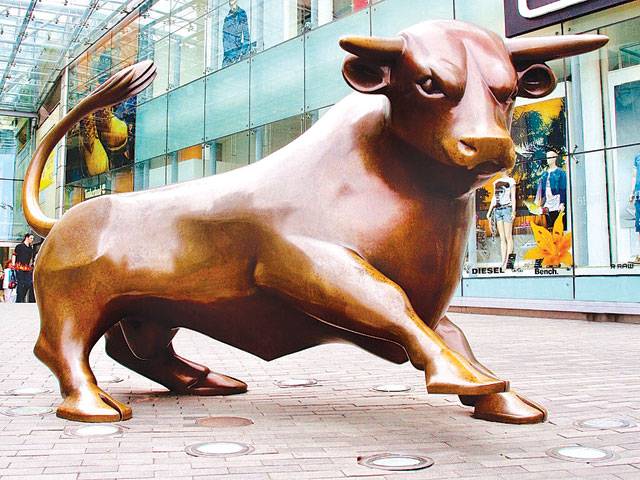BIRMINGHAM - Pakistanis will be seen either as customers or as the shopkeepers when you visit the Bull Ring area in this city of the United Kingdom.
You will see so many people wearing the traditional Pakistani shalwar kameez (baggy trousers and shirt) that you will not miss your country a bit.
The Bull Ring is a major commercial area of central Birmingham. It has been an important feature of Birmingham since the Middle Ages when its market was first held. Two shopping centres have been built in the area; in the 1960s, and then in 2003; the latter is styled as one word, Bullring. The site is located on the edge of the sandstone city ridge which results in the steep gradient towards Digbeth. The slope drops approximately 15 metres from New Street to St. Martin’s Church which is very visible near the church.
The current shopping centre was the busiest in the United Kingdom in 2004 with 36.5 million visitors. It houses one of only four Selfridges department stores, the fourth largest Debenhams and Forever 21.
The area was first known as Corn Cheaping in reference to the corn market on the site. The name Bull Ring referred to the green within Corn Cheaping that was used for bull-baiting.
The ‘ring’ was a hoop of iron in Corn Cheaping to which bulls were tied for baiting before slaughter. The joining of the two words in the 21st-century development of the area to form Bullring caused controversy amongst some residents and other people who were angry at the change of what was described as an “historic spelling.” The market legally began in 1154 when Peter de Birmingham, a local landowner, obtained a Charter of Marketing Rights from King Henry II.
A series of events in Birmingham’s political history saw the area become a popular meeting place for demonstrations and speeches from leaders of working class movements during the 1830s and 1840s.
In 1839, the Bull Ring was the location of the Bull Ring Riots, which resulted in widespread vandalism and destruction of property. It prompted fears amongst the town’s residents at the council’s inability to prevent or control the riots and led to speculation that the council was tolerant of lawlessness.
Because of disorderly behaviour at fairs, in 1861 the area, along with Smithfield and Digbeth, became the only place in central Birmingham where fairs were permitted. In 1875, all fairs were banned from the town.
The area around the market site developed and, by the Victorian era, a large number of shops were operating there. Immigrants set up businesses such as flower-sellers and umbrella vendors. The Lord Nelson statue became the location for preaching and political protests. Well-known preachers of the time were nicknamed Holy Joe and Jimmy Jesus.
Pakistan consul general in Birmingham Ahmer Ismael said there were thousands of Pakistanis living in Birmingham. “So many of them have been here for generations. There whole families are here,” he said, speaking to The Nation at his office.
He said be it Bull Ring or any other place, Pakistanis have a large presence in Birmingham. “You will see probably as many Pakistanis here as you do in Islamabad,” he remarked.
Ismael said they had been considering to purchase the building for the consulate for years. “Presently we are paying rent for his building. But we hope to buy it in the near future. We have to stay here permanently to help the Pakistani origin people,” he added.
A Pakistani shopkeeper said he felt no difference being in Birmingham and Pakistan apart from the better income. “I earn a lot better than Pakistan here. I don’t miss my country too much as many of my family members live here,” he maintained.






